360° Advocacy is at the heart of our communication strategy and communication is at the heart of everything we do. This is because we communicate not only to share information or to point out gaps, challenges and opportunities in the education sector.
[The details provided hereunder are still exploratory and not conclusive. They consider what can be done and leave room for adaptation and improvement, instead of specifying what must be done.
What gets done in each case will depend on a number of factors including the physical and security conditions, prevailing social and political conditions in the environment, cultural factors and practices, special needs of the target beneficiaries, availability of resource persons, interests of partners and donors, and availability of funds.
For each case or project considered and supported, detailed plans, processes, tools and resources will be drawn up in collaboration with the beneficiaries, donors and project partners. Descriptive and financial reports and receipts, evidences of payment, photos of project sites, testimonials and other records will also be shared with donors and project partners]
For decades, it has been widely acknowledged that the education sector in Nigeria is in crisis. Despite such acknowledgement, needed change in the sector is not happening at a pace and on a scale that would avert catastrophe, reverse the situation and promote sustainable development. Against this backdrop, 360° Advocacy is targeted at influencing attitudes, policy and action. It involves working together with stakeholders and influencers who have the authority and the ability to make change happen in the education sector but may need an injection of change of attitude, deeper understanding and alternative perspectives that will spur change.
Under 360° Advocacy, clear and present pressure points and important changes in attitudes, policy and action which need to happen urgently include:
One obvious gap is the outmoded schools curriculum at all levels and the outmoded methods of curriculum development. For instance, the youth are central to our education model, yet they are hardly if ever involved in designing their own curriculum or in influencing the teaching and learning ecosystem that suits their needs. There is hardly any long term vision and long term commitment to incentives for both teaching and learning. There is scarcely any comprehensive study involving the youth, students, pupils, out-of-school children, and communities underserved and unserved by the formal schools sector to determine what works for them or what might work better if done differently.
Given that pupils and students are more ICT savvy today than 20-30 years ago and that the way they are socialized to learn is widely different from the learning environment of the 1970s and 1980s, it is surprising that there is yet to be a focused attempt at or large-scale experiment with gamification models for learning. Also, given the rise of real and virtual social networks in the age brackets, schools are yet to introduce social networking models for problem solving, group projects and take-home assignments.
The above scenario is likely to change with the rise of the age brackets of social learning, creativity and innovation. Their rise will not only bring about change in the education sector but will also bring about crosscutting change in other sectors. Curriculum design will become more future-based, so that what is taught in schools at any time would be relevant to the labour market 10-15 years thereafter. Education will necessarily move away from the old colonial paradigm of the 3Rs (reading, writing, arithmetic) to a new paradigm which prioritizes life skills and practicable knowledge relevant within and outside the workplace of the twenty-first century.
Life skills in the schools’ curriculum at various levels will likely expand to include civic education, governance, decision making, goal setting, problem solving, entrepreneurship, dispute resolution, family planning, national development, history, political economy, astronomy, quantum physics, mindfulness practices, local languages, foreign languages, ICT and its multifarious applications, coding, software engineering, e-Governance, performing arts, and technical or vocational skills.
EduTrust Foundation will not only focus attention on the above gaps but more importantly will work together with stakeholders and influencers in the education sector—public sector, private sector, people sector and partners—to address policy gaps and to undertake remedial action and improvement. Key success factors include pooling together of a critical mass of teachers and educators with the right balance of knowledge, skills and commitment, backed up by positive policy, action and incentives for learning.
Another gap in education at many levels and in many parts of Nigeria is education of the girl-child. There is proof that early age disadvantage of the girl-child in education has a spinoff effect on all aspects of life. Generally, women are disadvantaged compared to men in terms of levels of education, earnings and political participation. Low levels of education combined with cultural factors and socially constructed gender roles translate to high rates of teenage pregnancy, early marriage, and low participation in decision making and family planning.
On average, much fewer women make it to positions of decision making and service or impact. The good news is that levels of women’s education and age at first marriage have also been increasing over time and the trend will likely continue for a long time. In addition to mainstreaming education of the girl-child in all our projects and initiatives, EduTrust Foundation will focus attention on maternal and infant healthcare and cultural sensitization, supporting women’s platforms for social cohesion and social learning. These efforts will translate to greater voice, consciousness and empowerment.
360° Advocacy is at the heart of our communication strategy and communication is at the heart of everything we do. This is because we communicate not only to share information or to point out gaps, challenges and opportunities in the education sector.

4 Agatu Street, off Gimbiya Street,
Area 11, Garki, Abuja, Nigeria.
By SVL
EduTrust Foundation Copyright © 2025. All rights reserved.